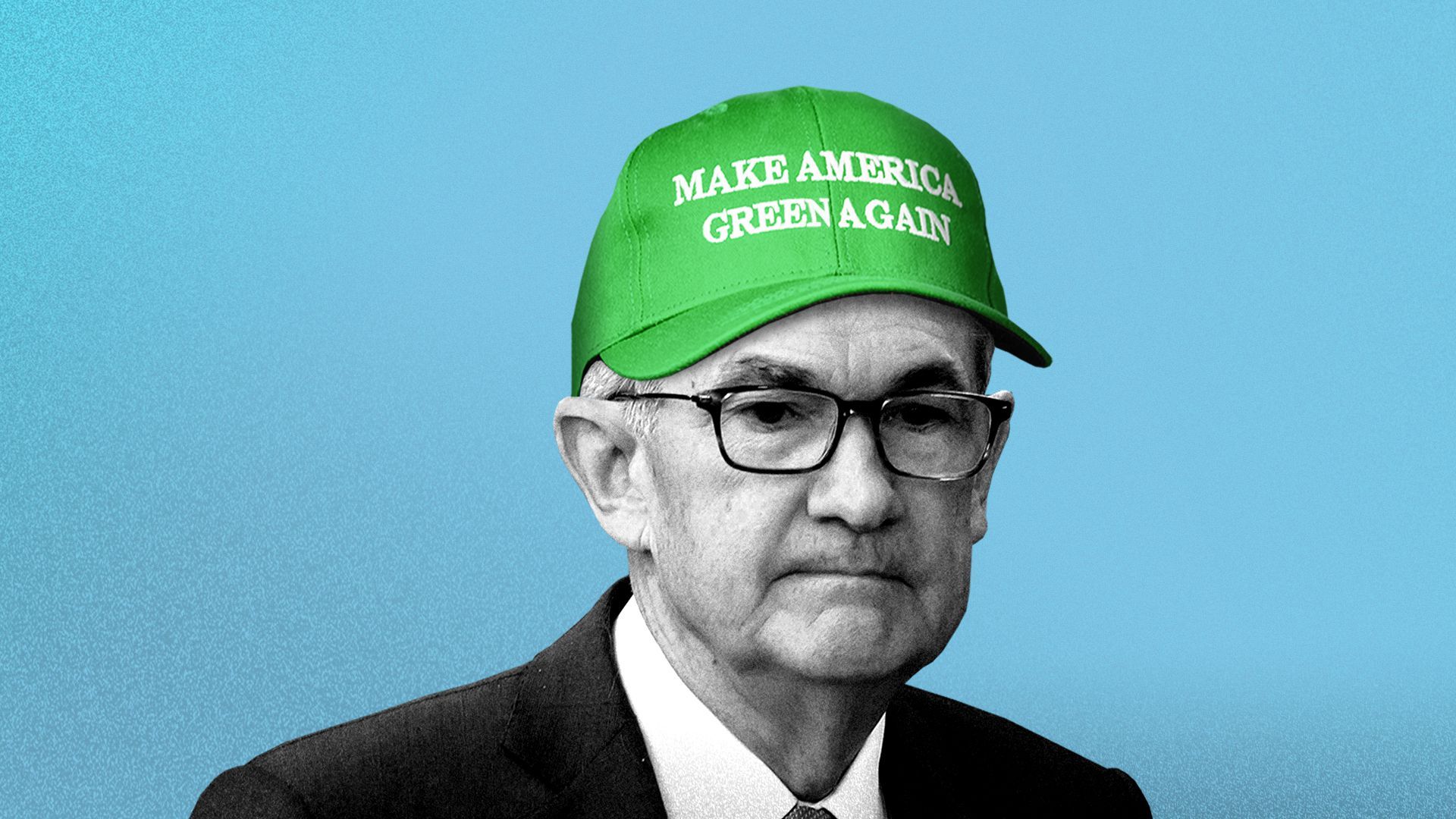Jerome Powell, Trump's re-election MVP
Add Axios as your preferred source to
see more of our stories on Google.

Photo illustration: Annelise Capossela/Axios. Getty Images photos: Andrew Caballero-Reynolds/AFP and Lev Radin/Pacific Press/LightRocket
President Trump trails Joe Biden in most polls, has generally lower approval ratings and is behind in trust on most issues. Yet polls consistently give him an edge on the economy, which remains a top priority among voters.
Why it matters: If Trump wins re-election, it will largely be because Americans see him as the force rallying a still-strong U.S. economy, a narrative girded by skyrocketing stock prices and consistently climbing U.S. home values — but the man behind booming U.S. asset prices is really Federal Reserve chair Jerome Powell.
Reality check: It is Powell, not Trump, that Wall Street credits for the stock market's return to all-time highs, even in the face of the worst economic collapse in U.S. history last quarter.
- That's got many voters feeling the "wealth effect" — a greater belief in economic strength and confidence when the value of homes and investment portfolios rise — despite the fact that only half of Americans own stocks and more than 80% of equities are held by the top 10% of households.
Trump's 2017 tax cut certainly helped the market, but its effects were offset in no small part by his trade war with China and the uncertainty caused by Trump's diplomacy-by-tweet style.
The intrigue: Powell has gone above and beyond the actions of previous Fed chairs to boost markets. His course correction in 2019 to lower U.S. interest rates and restart the Fed's massive bond-buying program in the midst of a strong U.S. economy was controversial, but helped power the S&P 500 higher by 30%.
- This year, Powell's decision to roll interest rates back to zero and provide markets with $3 trillion in liquidity has kept stock indexes hitting record highs even as close to 30 million Americans collect unemployment benefits.
- And the promise of unlimited asset purchases, including buying bonds from trillion-dollar companies like Apple and even companies with "junk" credit ratings in March, has been described as "unprecedented."
- Some even argue Powell violated the Fed's founding charter, the Federal Reserve Act.
What they're saying: The Fed and other central banks effectively "nationalized" the market for government and corporate bonds, strategists at Bank of America said in a note to clients in mid-July, helping lead to "irrationally" high stock prices.
- "Free market enterprise no longer exists," Scott Minerd, chief investment officer of Guggenheim Partners, told me last month. "The Fed by essence of what it's doing has taken control of the market."
- And the central bank's recent pledges to keep interest rates at nearly 0% through at least 2023 has removed the threat of higher interest rates, bolstering sentiment for stocks, precious metals and home buying.
The big picture: The Fed's impact has helped keep eyes trained on record high equity indexes and away from spiking job losses, rising food insecurity, a growing trade deficit with China, a national debt nearing $27 trillion and a debt-to-GDP ratio on pace to be the worst in history.
- The latest PBS NewsHour/NPR/Marist poll found that 20% of respondents rated the economy as their top issue — it was No. 1 among those who identified as Republicans — and half of Americans see Trump as a more effective leader on that issue, compared to 43% for Biden.
